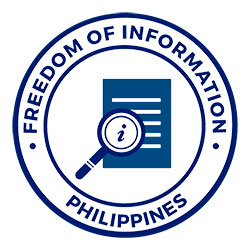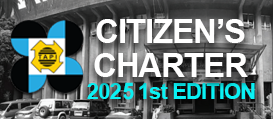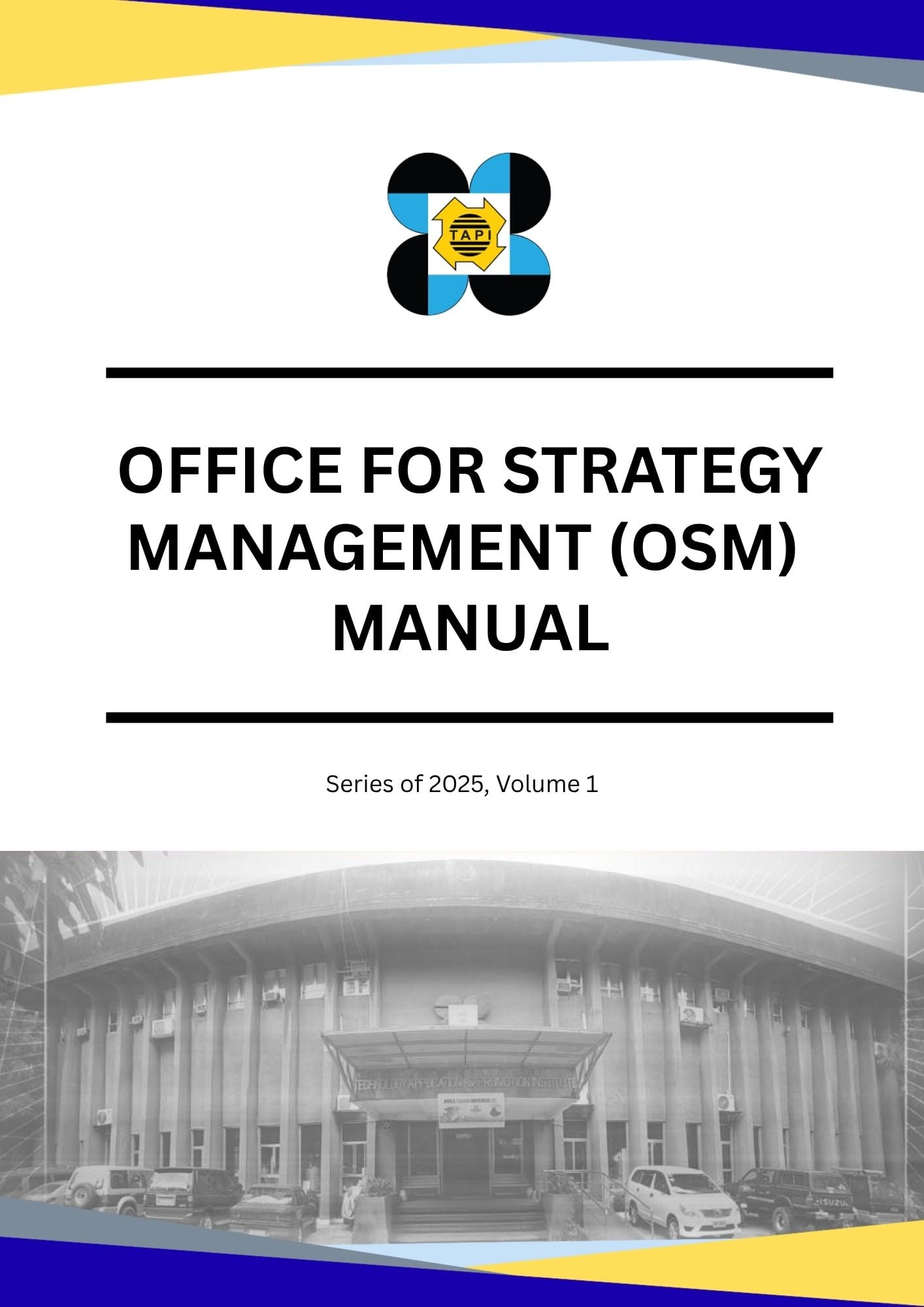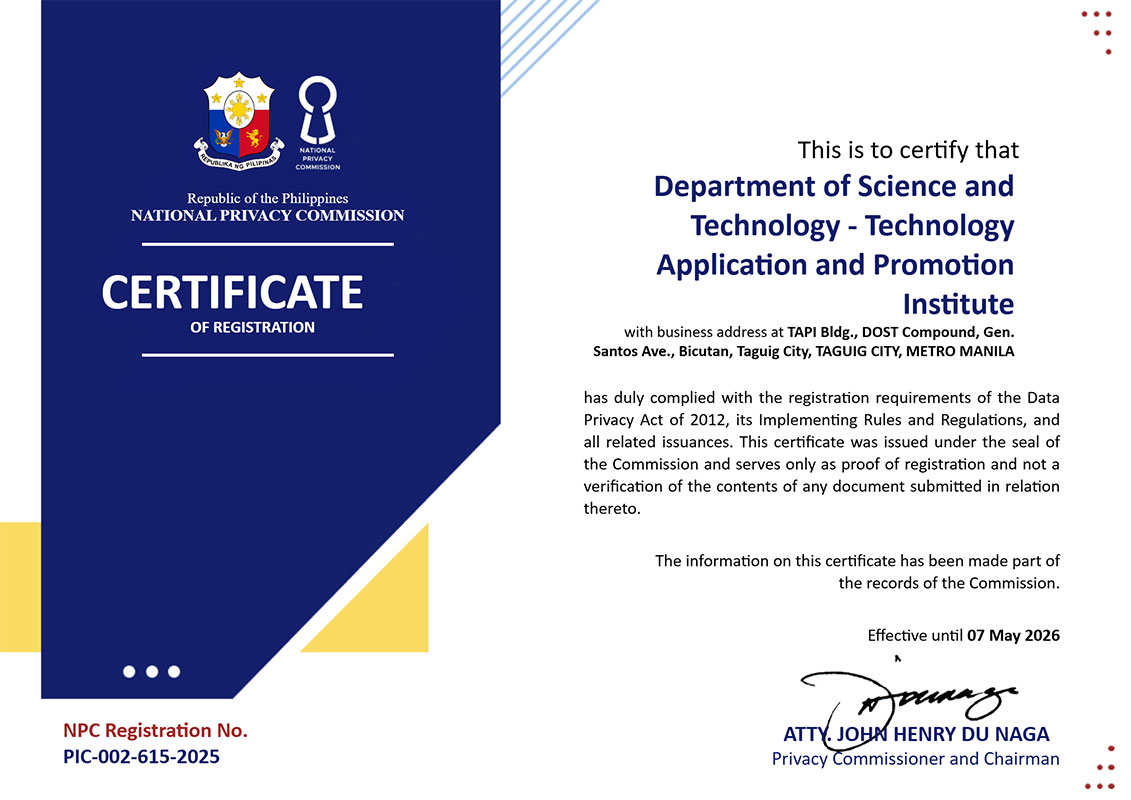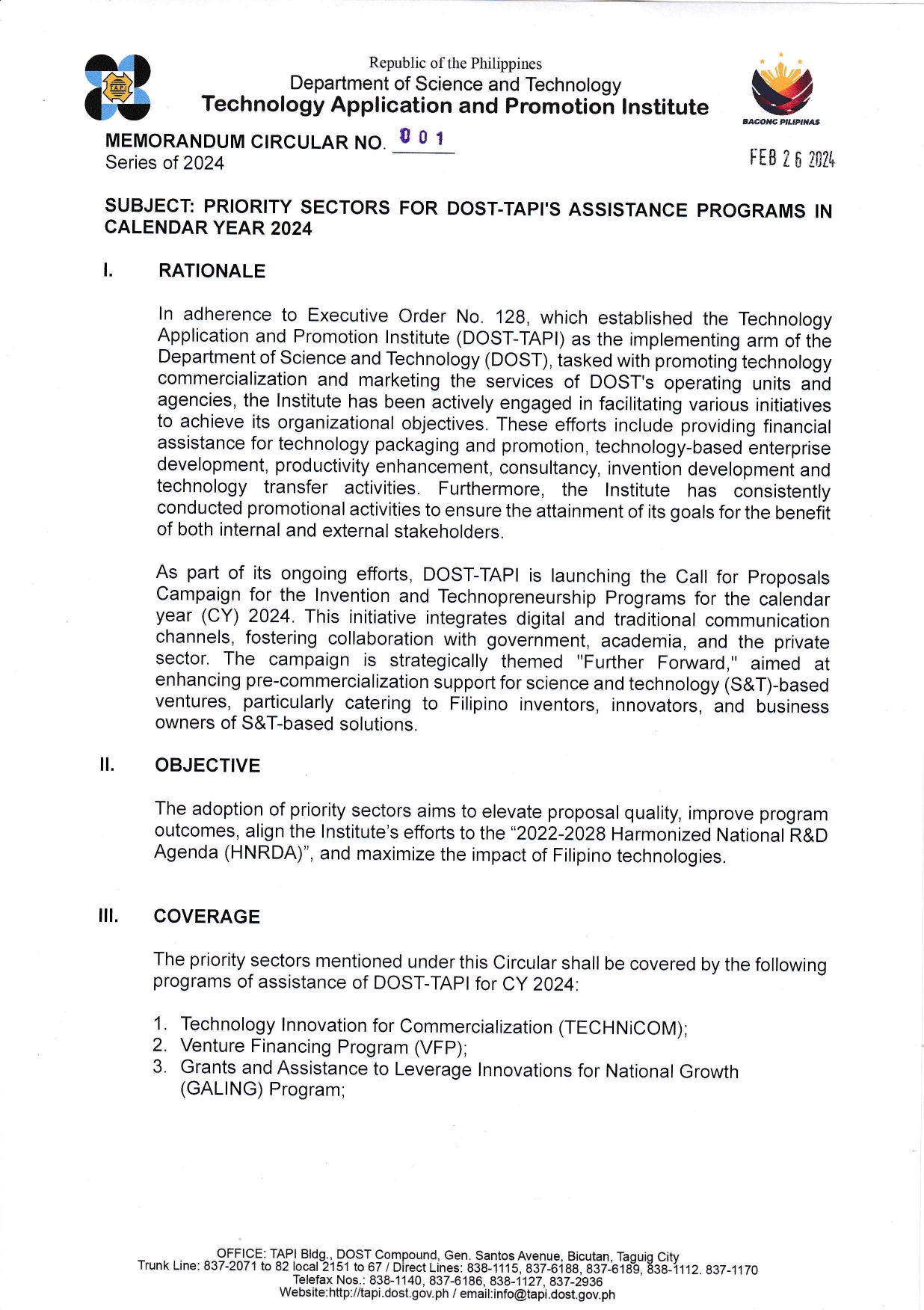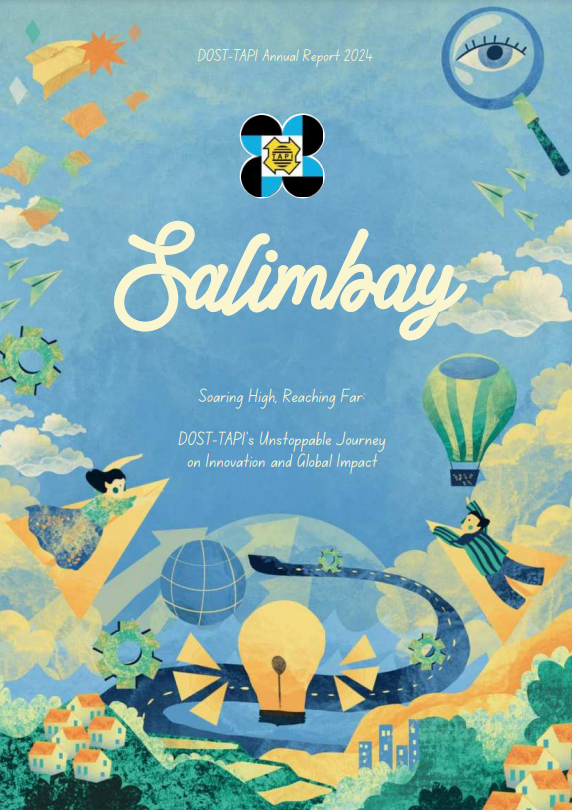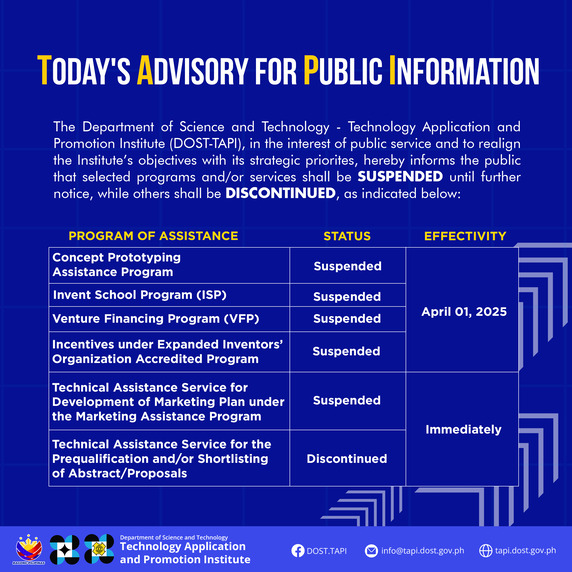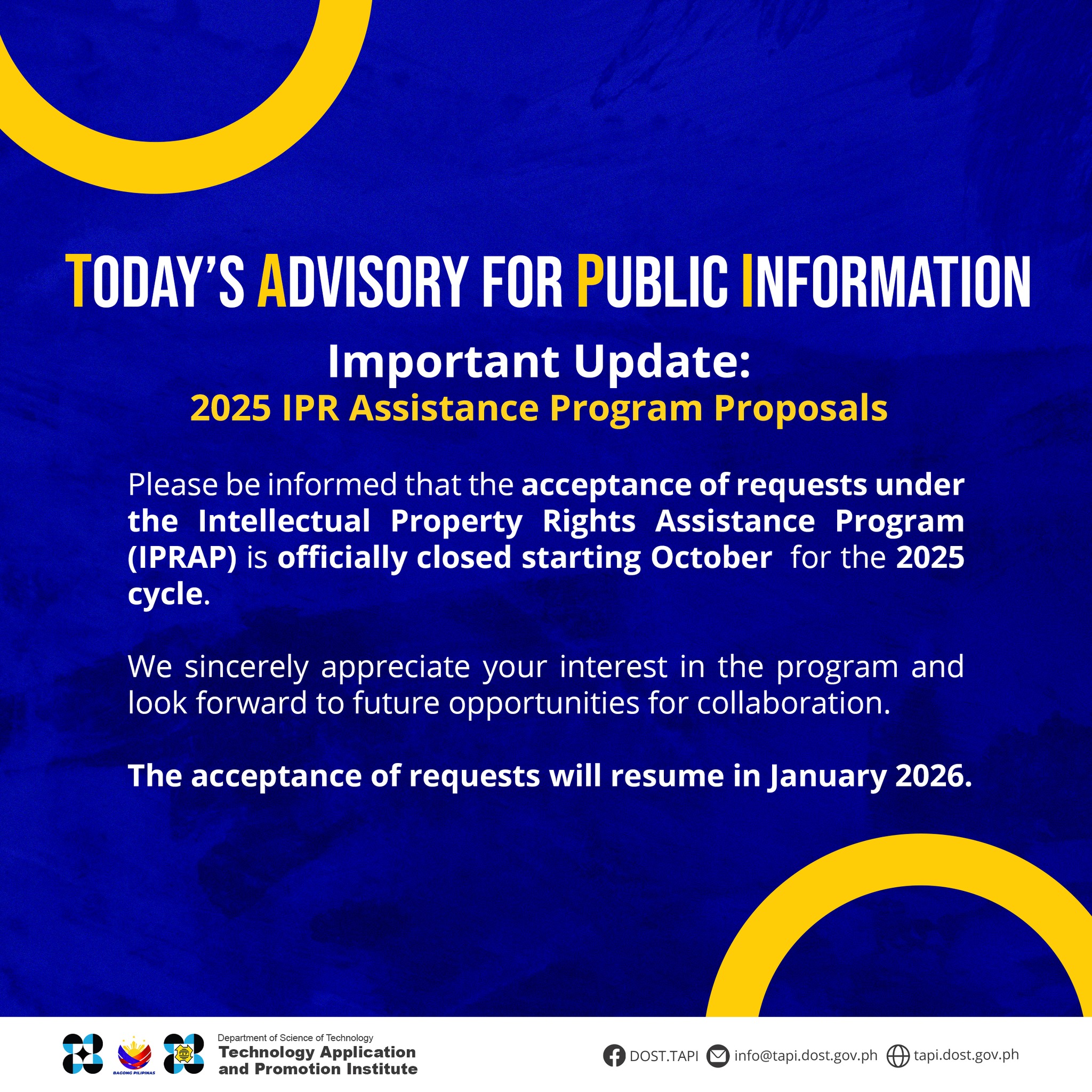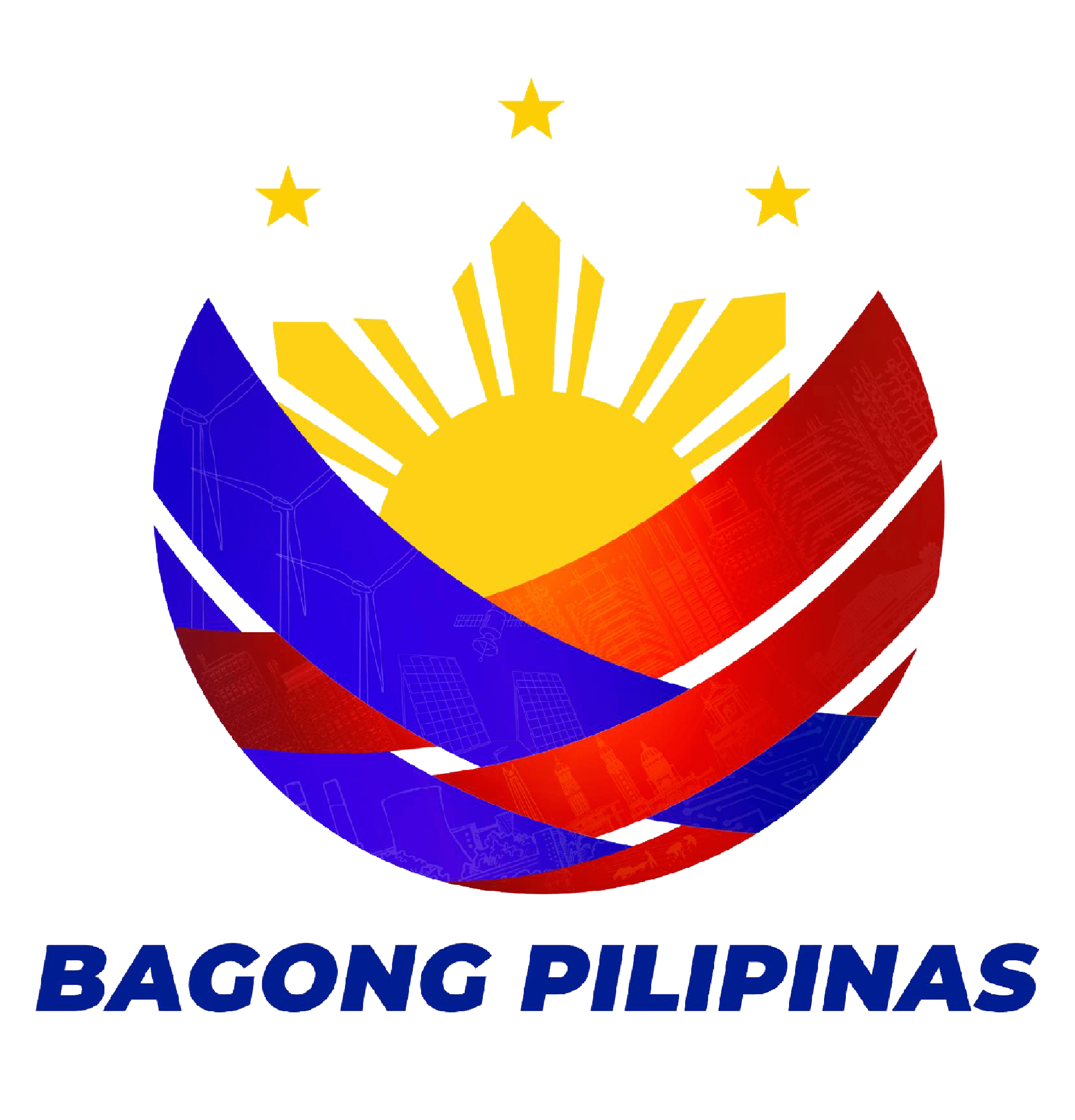- Details
The Technology Application and Promotion Institute (DOST-TAPI) launched the Call for Abstracts for its Invention and Innovation programs, which offer a range of funding opportunities to propel tech-driven ventures to success.
Dubbed as the Further Forward campaign, DOST-TAPI's Call for Abstracts invites eligible proponents to submit their abstracts in applying for its current program offerings, including the Technology Innovation for Commercialization (TECHNiCOM), Venture Financing Program (VFP), and I-Tech Lending Program.


